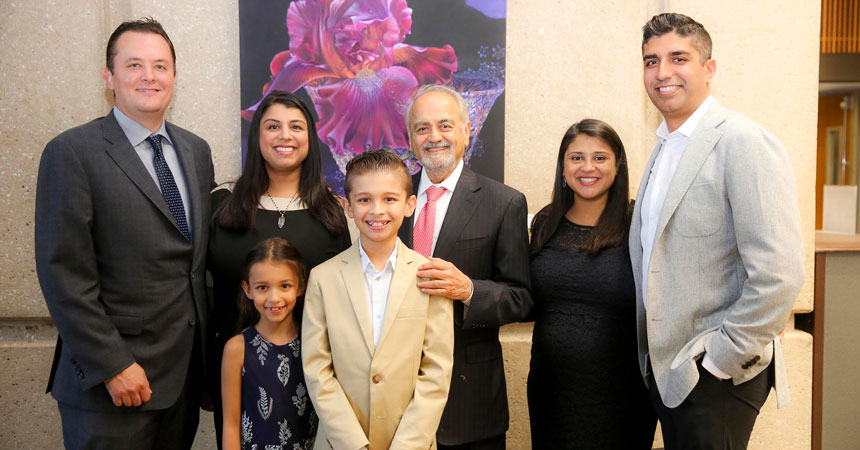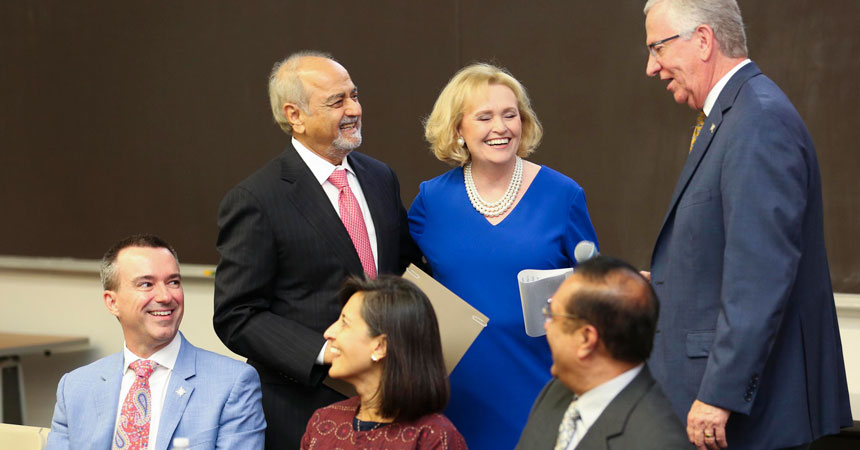Professorship focuses on health disparities faced by South Asians
By Jan Jarvis
As soon as he was settled in the United States after moving here from India, Naresh Vashisht arranged for his mother back home to join him.
But the move brought heartbreak.
Giving to UNTHSCUNTHSC relies on gifts from supporters, like you, to propel our students, programs, and research. |
His mother died from a sudden heart attack not long after her arrival.
“She was just 65 years old, but her siblings in India lived into their mid-90s,” Vashisht said. “What happened?”
The question might one day be answered through the establishment of the Naresh Vashisht Professorship in Indian American Health and Health Disparities. The Fort Worth entrepreneur in the oil and gas industry recently endowed the professorship at UNT Health Science Center to support studies on the overlooked health disparities that South Asian Indians face.
The professorship is the first of its kind in the nation and brings to light the high risk for heart disease, diabetes and mental health problems that this rapidly growing population faces in America, said Jamboor Vishwanatha, PhD, Regents Professor and Director, Texas Center for Health Disparities Center for Diversity and International Programs.
“When new immigrants come to this country, psycho-social stress and a change of environment play a role in manifesting health conditions,” he said. “But this is not just the first generation that is effected; this is something that persists in subsequent generations.”
South Asians have a higher rate of death from heart disease than any other ethnic group. They develop cardiovascular disease 10 years earlier than other groups and face a high risk of having a heart attack before they turn 50.
Although they are the second fastest growing ethnic group in this country, the population and its health disparities have not been widely studied. Asian Americans make up 6 percent to 7 percent of the population, but only .17 percent of research goes toward this community and health disparities, said Alka Kanaya, MD, a Professor of Medicine at the University of California, San Francisco. Dr. Kanaya attended a recent reception honoring Vashisht.
Like Vashisht’s mother, Asian Indians often appear to be the picture of health. Many follow a heart healthy vegetarian diet, but still die prematurely.
“They often have a normal weight, which is not the problem,” Dr. Kanaya said. “But South Asians store fat in all the wrong places of the body.”
South Asians tend to store fat in the liver, abdomen and muscles, which can cause metabolic damage.
An estimated 60 percent of the world’s cardiac patients are South Asian, Dr. Kanaya said. They also have the second highest rate of diabetes.
“We need a real investment in this growing population,” she said.
Provost Dr. Charles Taylor described the gift as “truly transformative.”
“This gift will shine a bright light on this health disparity,” he said. “Through this gift, we know we’ll be making a difference.”







Social media